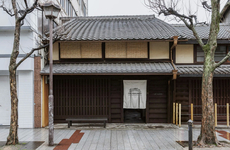
Zaha Hadid Architects and Epic Games Add to Re:Imagine London
References: create.fortnite & dezeen
British design studio Zaha Hadid Architects joins forces with software developer Epic Games to create a parametric look of London as a part of the Re:Imagine London game. It is a continuation of the video game Fortnite where players are dropped onto the island on the city's waterfront. The style reflected buildings that are finished in the studio's signature style. Players can form their own architecture and combine it with other buildings on the site including the famed St Paul's Cathedral, Tate Modern, and more.
This is a great way to explore urban development and ais community engagement to walk through these areas. Zaha Hadid Architects shares, "The experience facilitates rapid optioneering through an engaging and exploratory approach to negotiating the complexities of the urban condition to build collaboratively in a contemporary context. The build content within Re:Imagine London is crafted in various scales as pre-composed spatial scenes, expressing architectural, geometric and spatial features consistent with out built works while contributing to the planning and constructional awareness of configured solutions."
Image Credit: Epic Games, Zara Hadid Architects
This is a great way to explore urban development and ais community engagement to walk through these areas. Zaha Hadid Architects shares, "The experience facilitates rapid optioneering through an engaging and exploratory approach to negotiating the complexities of the urban condition to build collaboratively in a contemporary context. The build content within Re:Imagine London is crafted in various scales as pre-composed spatial scenes, expressing architectural, geometric and spatial features consistent with out built works while contributing to the planning and constructional awareness of configured solutions."
Image Credit: Epic Games, Zara Hadid Architects
Trend Themes
1. Parametric Architecture - Exploring innovative design through real-time 3D modeling in video games promotes a dynamic intersection of virtual and physical spaces.
2. Urban Development Simulation - Transforming urban landscapes within video games enhances community engagement and offers practical insights into city planning and development.
3. Architectural Gamification - Integrating renowned architectural styles into interactive gaming environments merges entertainment with educational urban experiences.
Industry Implications
1. Video Game Development - Combining architectural accuracy with engaging gameplay opens up new realms for immersive user experiences and educative play.
2. Urban Planning - Utilizing digital recreation of cityscapes fosters collaborative planning and deeper public involvement in urban development projects.
3. Architecture - Adopting gaming technologies to visualize and experiment with architectural designs enables innovative approaches to contemporary city layouts.
5
Score
Popularity
Activity
Freshness















